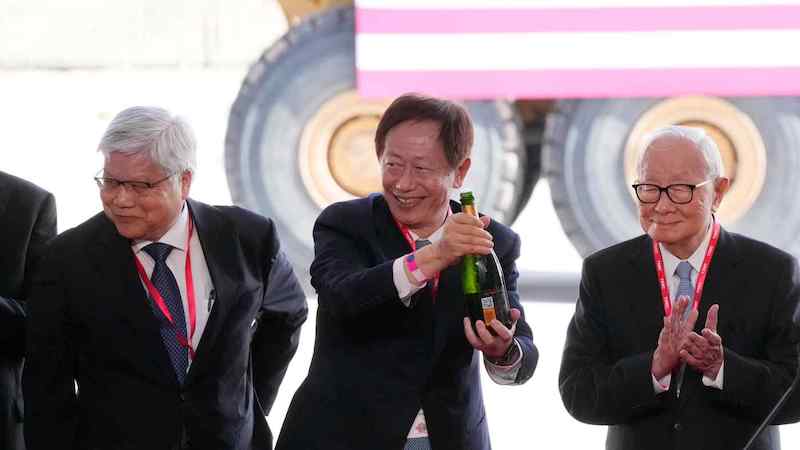
U.S. allies are on board for China chip tech controls after all
Sharing of costs has reduced corporate grumbling about lost exports
By Chris Miller, Associate Professor of International History at The Fletcher School
When the U.S. imposed major new export controls on China’s data center and chip industries last October, many commentators suggested this unilateral action was likely to backfire.
Would Washington really be able to convince key producers of chipmaking machinery like Japan and the Netherlands to go along? Would technology companies tolerate major restrictions on their sales?
As media in South Korea and Taiwan worried about the impact of the controls on local companies, some analysts speculated that Chinese diplomacy could fracture the coalition needed to implement Washington’s strategy of chip containment.
Six months later, the chip controls coalition is looking unexpectedly durable. This is because costs of participation have been minimized and also shared fairly equitably among coalition members.
Though business is not happy about the controls, the security apparatus in each key country involved is supportive. In important ways, the new controls suit the interests of America’s allies. At the same time, they have partly shielded themselves from Chinese retaliation by letting Washington take the lead in public. But it would be wrong to interpret their silence as opposition.
Take Taiwan Semiconductor Manufacturing Co. (TSMC), the island’s largest chipmaker, which is now prohibited from making certain chips designed by Chinese customers for use in artificial intelligence training. Such chips represented a small fraction of TSMC’s business.
Meanwhile, allied export controls on the sale of machine tools to Semiconductor Manufacturing International Corp. (SMIC) will set back China’s biggest foundry by years. Customers are reportedly shifting orders from Chinese foundries to their Taiwanese competitors. TSMC founder Morris Chang has publicly declared that he supports the U.S. export controls.
What about Japan, whose machine tool manufacturers face new restrictions on sales to China?
Japan’s government is, if anything, even more hawkish than the U.S. when it comes to economic security concerns. Discussion of tech export restrictions occurs quietly in Japan, in contrast to the public nature of U.S. debates. But Tokyo’s recent decisions to double defense spending as a share of gross domestic product and to acquire missiles that can strike deep into China provide evidence of just how dramatically Japan’s views have shifted. In comparison to doubling defense spending, restricting semiconductor equipment exports was a politically easy move for Tokyo.

South Korean companies were also impacted by the new U.S. export controls. They now need licenses from Washington to move certain types of tools to their chipmaking facilities in China, where both Samsung Electronics and SK Hynix have important facilities.
Moreover, America’s CHIPS and Science Act limits any company receiving U.S. funds from significantly expanding chipmaking facilities in China or from entering new research and development partnerships with certain companies.
South Korean commentators have been debating whether the new “guardrails” are too costly or discriminatory. But in fact, they will not change that much.
After half a decade of an intensifying chip war, few South Korean companies were planning new investments in China anyway. South Korean sentiment toward the country has turned sharply negative.
Beijing’s chaotic exit from zero-COVID plus tensions between China and Taiwan have only reinforced corporate wariness. True, South Korean chipmakers want more clarity from the U.S. regarding how long they will be able to get licenses to upgrade equipment in existing facilities. But so far the administration of U.S. President Joe Biden has indicated a willingness to issue temporary licenses to those with facilities in China as they shift advanced manufacturing back to South Korea.
Perhaps the trickiest negotiations regarding the new semiconductor regime involved the Netherlands, which is far from China and thus less directly impacted by Beijing’s military buildup.
The Dutch government appears to have had some internal debate about the export controls while Dutch industry warned of the financial cost. Yet here too, Washington’s request that the Netherlands mirror U.S. and Japanese controls proved a less difficult ask than it may have seemed.
For one thing, the Dutch defense ministry has reportedly backed restrictions on certain types of chipmaking equipment. Second, Dutch public opinion on China has soured dramatically in recent years, making the U.S. argument that China poses a security challenge an easier sell.
Looking across the chip controls coalition, security policymakers seem mostly aligned. Companies have of course been unhappy to see their sales restricted, but their unhappiness is spread around fairly equitably.
The U.S., which has the world’s largest chip industry, is paying the largest cost from the new controls in the form of lost sales for chip designers like Nvidia and Advanced Micro Devices as well as those of chip equipment companies and design software providers.
Moreover, Chinese buyers of chipmaking equipment will probably switch to Japanese or Dutch tools where they can, hoping for slightly more lenient enforcement of the export controls. Companies based in other members of the chip control coalition will face lower sales to China too, but the fact that costs are being spread widely across the industry has made them more politically palatable.
Even China looks to have come to terms with the new restrictions. Of course, it will continue spending vast sums in an effort to produce critical chipmaking design software and the manufacturing facilities needed for advanced production. Yet almost six months have passed since the October controls, and Beijing has not retaliated.
All the frequently discussed retaliatory options, such as cutting off rare earth exports or punishing American tech companies with assembly operations in China, would cost Beijing just as much as they would hurt the U.S. Retaliation would frighten foreign companies and accelerate the partial tech decoupling that is already underway.
Thus, it is not only America’s allies that have signed on to the chip tech choke. Even Beijing has concluded its best strategy is to play along.
(This post is republished from Nikkei Asia.)
